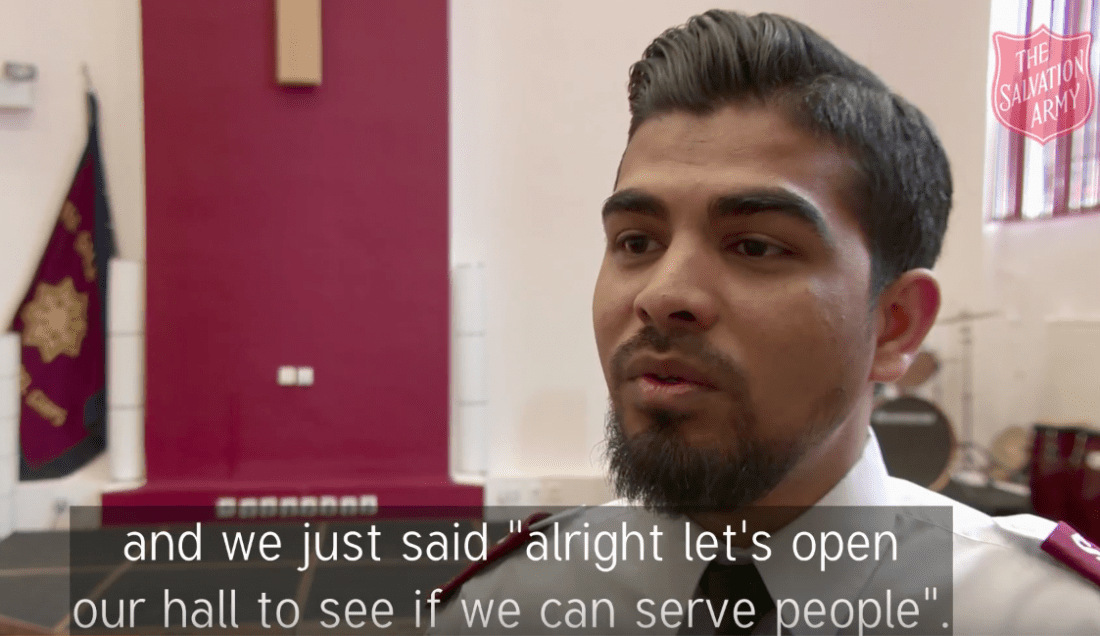inProcess
by Glen Doss, Major –
“I’m so glad you gave your heart to me, Billy!” the Lord exclaimed. “Now here’s what I want you to do.”
“But, God, that’s not what I was thinking,” replied the troubled young man after hearing the Lord’s demands.
“Yes, I know. But you gave your heart to me; you made a commitment.”
“Yes, I did. And I will stick by it, God. I will force myself to comply with your will.”
“Good, Billy. Now work with me. We’re going on a spiritual journey together. I’m going to teach you.”
This little dialogue in the spiritual plane illustrates the disharmony with which each Christian walk begins. There is a difference between what we want and what God wills for us. What we do with the feedback God provides tells the tale of whether our commitment is sincere. For Scripture is clear: true salvation produces the fruit of obedience (Matt 7:21).
An avid follower of the Billy Graham crusades, I often wondered how many of the thousands who made a decision for Christ during each crusade actually followed through with their decisions. Only God knows which of us truly believes with the heart (Rom 10:10 NKJ) and subsequently obeys.
Scripture informs us that God works a mighty transformation of our will if we commit to going on the journey with him. Continue to work out your salvation with fear and trembling. For it is God who works in you to will and to act according to his good purpose (Philippians 2:12-13 NIV).
Let’s say a man’s physician informs him that he has six months to live. Shortly afterward he meets with his attorney to fill out his last will and testament. After he passes on, his family gathers in the attorney’s office to hear the will read. What the attorney shares with the family is the man’s thinking at the time he wrote the will. Likewise, we can think of our will as our thinking and of our subsequent actions as the behavior stemming from that thinking. If I allow God to transform my thinking by the renewal of my mind, my behavior will change. I am no longer a slave to sin—at the beck and call of sinful compulsions. No longer must I attempt to force myself to comply with God’s law and fail trying. Rather, I desire what God desires for me. As an old saint once said, “Today I could have a foaming stein of beer anytime I want to. I just don’t want to anymore. God took the ‘want to’ away.”
Billy’s decision was sincere. Consequently, he commenced a journey hand-in-hand with God in which his walk became increasingly easy. Following God’s instructions in terms of reflection, confession, study, making amends and prayer, he more and more relinquished control of his will to God. His desires became more aligned with the Lord’s. Formerly self-centered, he became other-centered; once selfish, he became compassionate. Therefore, it was inevitable that one day (in the spiritual plane, of course) the following exchange occurred.
“Good morning, Billy,” The Lord said. “Here are my plans for you today.”
“Wonderful!” Billy exclaimed after hearing them. “That’s exactly what I was thinking!” Billy’s mind had been transformed so that he was now “…able to test and approve what God’s will is, his good, pleasing and perfect will (Rom. 12:2 NIV).
One day in my office a young man exclaimed, “You mean I really am a new creation in Christ? It’s not just so much flowery language?”
“Absolutely,” I told him. “That’s the whole point of Scripture. The new birth is a real event. We are born anew on the inside, where it counts.”
The Big Book of Alcoholics Anonymous presents a vivid portrayal of the progressive transformation process.
“We have entered the world of the Spirit….Continue to watch for selfishness, dishonesty, resentment and fear. When these crop up, we ask God at once to remove them. We discuss them with someone immediately and make amends quickly if we have harmed anyone. Then we resolutely turn our thoughts to someone we can help. Love and tolerance of others is our code.
“And we have ceased fighting anything or anyone—even alcohol. For by this time sanity will have returned. We will seldom be interested in liquor. If tempted, we recoil from it as from a hot flame. We react sanely and normally, and we will find this has happened automatically. We will find that this new attitude toward liquor has been given us without any thought or effort on our part. It just comes! This is the miracle of it. We are not fighting it, nor are we avoiding temptation. We feel as though we had been placed in a position of neutrality—safe and protected. We have not even sworn off. Instead, the problem has been removed. It does not exist for us. We are neither cocky nor are we afraid. That is our experience. This is how we react so long as we keep in fit spiritual condition” (Alcoholics Anonymous pages 84-85).












